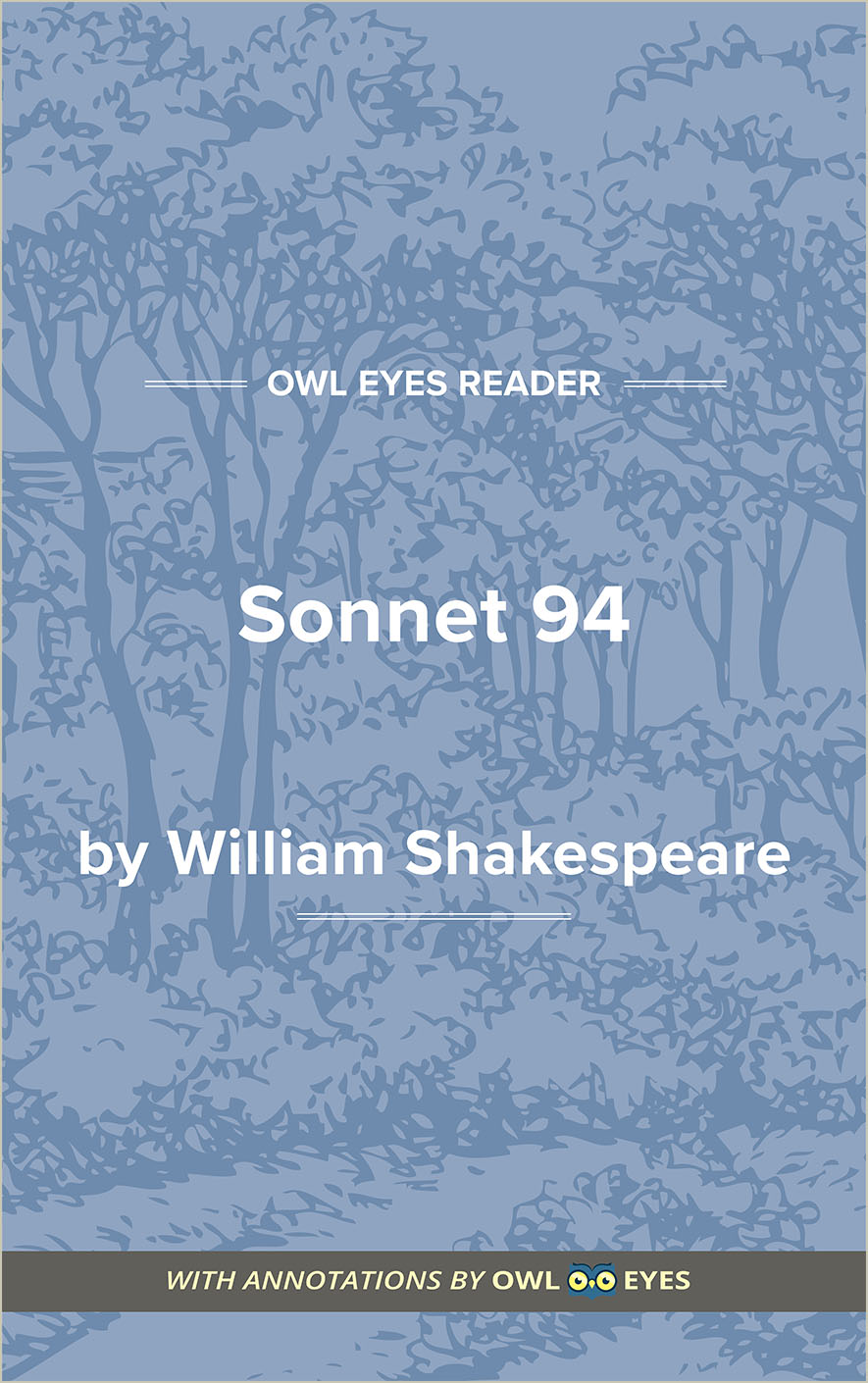- Annotated Full Text
- Literary Period: Renaissance
- Publication Date: 1609
- Flesch-Kincaid Level: 21
- Approx. Reading Time: 0 minutes
Sonnet 94
In Sonnet 94, the speaker issues a word of caution to the fair youth. The speaker describes the great power, but equally great responsibility, that comes with the gift of beauty. He praises those who “have the power to hurt,” to take advantage of others with their beauty, but choose not to. In the second quatrain, the speaker uses metaphors of land ownership to promote a philosophy of self-restraint and control. In this discussion, he weaves in an important theme from the Christian tradition: the question of whether personal faith or good deeds are of higher importance. By characterizing beauty as an inheritance of “heaven’s grace,” the speaker places a moral responsibility on the fair youth. As the third quatrain unfolds, the speaker makes it clear that “summer’s flower”—the person of exceptional beauty—must not live for itself alone. As the sonnet draws to a close, the speaker raises the stakes: the more gifted and beautiful the person, the more unacceptable their misdeeds.
- Annotated Full Text
- Literary Period: Renaissance
- Publication Date: 1609
- Flesch-Kincaid Level: 21
- Approx. Reading Time: 0 minutes

